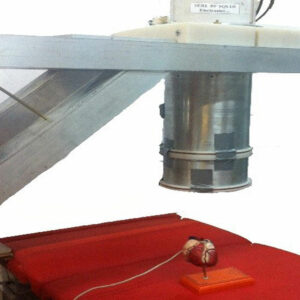Magnetocardiography

Magnetocardiography (MCG) is a noninvasive technique for characterization of the magnetic fields created via heart activation currents. There is an increased need to using MCG as a diagnostic tool such as for fetal applications. However, in contrast to the presently increasing interest for clinical application of MCG system, low-Tc SQUID magnetometers have been used in the majority of developed MCG systems. These systems require expensive liquid Helium, while they are also mostly installed in expensive magnetically shielded rooms. Using HTS SQUIDs, which can operate at the temperature of liquid Nitrogen, while operating outside a MSR by incorporating the active shield, would have much lower costs and can be more generally available at hospitals and clinics.
In this work, we developed single-channel high-Tc rf SQUID based MCG system for operation in passively unshielded environment. In brief, our system consists of a liquid Nitrogen Dewar and high-Tc rf-SQUID capsuled in a holding probe, which is connected via coaxial cables to our multichannel rf-SQUID readout electronics. We designed and implemented a monolayer optimum design of HTS flux concentrator integrated with resonator with strong coupling to the rf-SQUIDs for increasing system sensitivity. For noise cancellation, a bi-stage active shield system is proposed, which is based on high-Tc rf-SQUID sensors in gradiometric configuration. The presented shielding system reduces the low and the mid-range frequency magnetic field noises by use of two separate sets of coils and their controller systems. Using the designed shielding system, the disturbing magnetic signals of the environment could be attenuated up to 50 dB. So, the artificial heart signals with 10-100 pT amplitude could be obtained in our noisy laboratory environment.